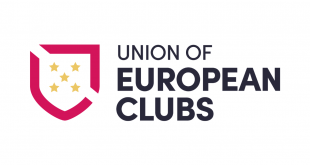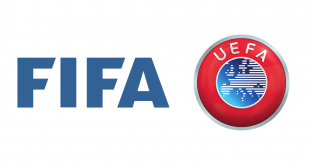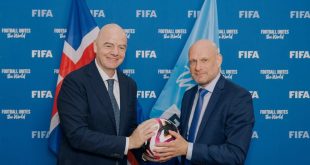 The UEFA Executive Committee met today via videoconference and was informed of the confirmation given by local authorities that all four UEFA EURO 2020 matches in Munich will be able to welcome a minimum of 14,500 spectators. Munich was therefore confirmed as a host venue for the championship.
The UEFA Executive Committee met today via videoconference and was informed of the confirmation given by local authorities that all four UEFA EURO 2020 matches in Munich will be able to welcome a minimum of 14,500 spectators. Munich was therefore confirmed as a host venue for the championship.
The committee then decided to reallocate some of the UEFA EURO 2020 matches as follows:
- The four matches initially scheduled to take place in Bilbao, will be moved to the Estadio La Cartuja in Seville. The hosting of these matches is supported by the Autonomous Community of Andalusia, which has confirmed its intention of allowing spectators at 30% of the stadium capacity for the three Group E matches and a Round of 16 match.
Following the decision of the local authorities, it was clear that fans were very unlikely to be able to attend the matches that were scheduled to be played there. Therefore, with the assistance of the Royal Spanish Football Federation (RFEF), UEFA proposed to move those matches to another venue in that host country, simply to allow fans to attend the games after a year of not being able to watch live football in stadiums. This decision will allow a festive atmosphere at all matches taking place in UEFA’s flagship national team competition. - The three Group E matches initially scheduled for Dublin, will be reallocated to the Saint Petersburg Stadium, which is already hosting three Group B matches and a quarter-final.
- The Round of 16 match initially scheduled in Dublin, will be moved to Wembley Stadium in London.
UEFA President Aleksander Čeferin said, “We have been working diligently with the host associations and local authorities to ensure a safe and festive environment at the games and I am really pleased that we are able to welcome spectators at all matches for a celebration of national team football across the continent.”
UEFA wishes to express its appreciation and gratitude to the cities of Bilbao and Dublin – both of which are considered as good venues to host future UEFA events – the national and regional governments of Spain and the Republic of Ireland, and all local stakeholders for their dedication, professionalism and efforts over the past years.
UEFA would also like to thank the Football Association of Ireland and its dedicated staff for their excellent collaboration and hard work, and is looking forward to continuing to work with the remaining eleven host associations in delivering UEFA EURO 2020 matches.
Information for ticket buyers
All tickets for matches in Bilbao and Dublin will be cancelled. All impacted ticket buyers will receive a full refund for the face value of their cancelled tickets.
Further details about tickets sales for the re-organised matches in London, Saint Petersburg and Seville will be communicated on EURO2020.com/tickets and via email to existing ticket buyers.
Importantly, existing ticket buyers for Bilbao and Dublin will receive priority access on a first-come, first-served basis to future ticket sales windows for the corresponding re-organised fixtures.
For any future ticket sales via Participating National Associations sales programmes, the rules of the respective fan clubs will apply.
Fans are encouraged to carefully consider border entry restrictions and requirements and can find detailed information on the official spectator event guide, available on EURO2020.com and the UEFA EURO 2020 App, with additional information about COVID-19 mitigation measures at the stadium and travel information for each host city.
Follow My Team ticket buyers
Considering the location for most knock-out matches is unknown until completion of the group-stage, and the existing significant travel restrictions, UEFA has decided to cancel and refund all Follow My Team tickets.
Importantly, the quota of Follow My Team tickets for the knockout stage matches will remain reserved for fans of the qualified teams, which will (subject to the rules of the respective fan clubs) still give them the opportunity to purchase tickets at a later stage, should their team progress and should travel restrictions permit them to reach the match venue at short notice.
So-called Super League
In addition, the UEFA Executive Committee was updated on the latest developments regarding the so-called ‘Super League’ including the options available to UEFA and the steps it is considering taking.
 Arunava about Football A look at football & the world through my eyes!
Arunava about Football A look at football & the world through my eyes!



